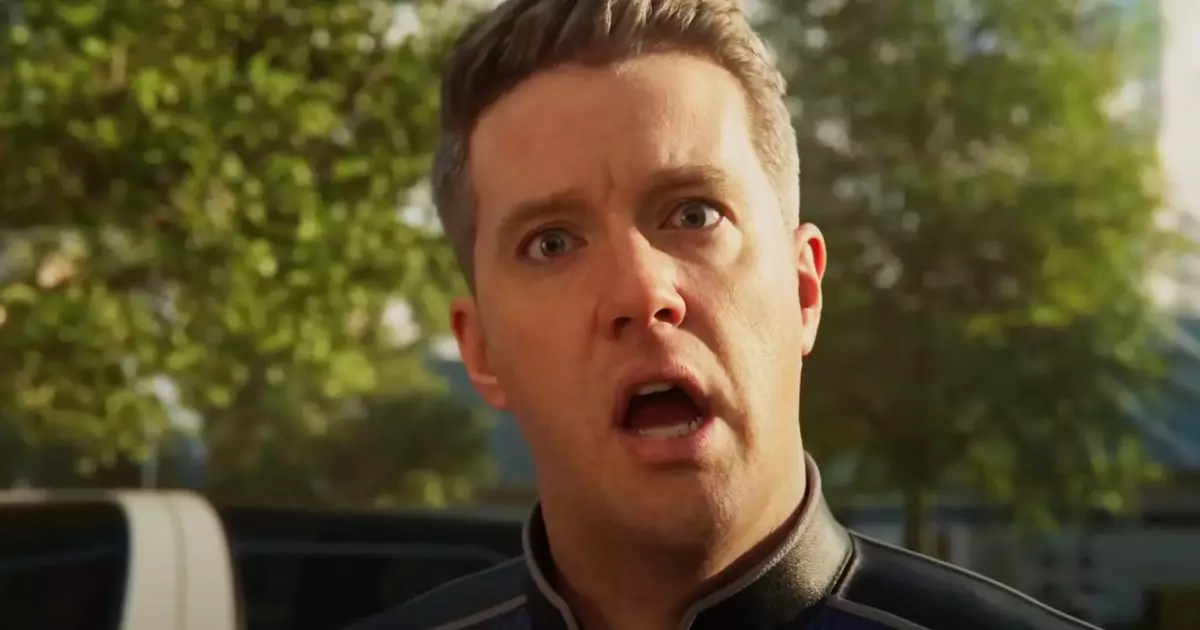Helldivers 2, the latest installment from Arrowhead Studios, boldly leans into a provocative narrative that blurs the line between gaming entertainment and political satire. The game’s recent directives, which demand players orchestrate a massive and seemingly relentless campaign of destruction across super Earth, evoke a paradoxical message: in order to restore citizens’ trust, chaos must be intensified. This approach flips conventional notions of security and stability, suggesting that overwhelming force, even when seemingly counterproductive, can paradoxically serve a greater purpose. The game’s narrative openly exposes this absurdity, forcing players—and by extension, society—to confront the uncomfortable truth: sometimes, increasing violence is rationalized as a necessary evil for the illusion of control.
Such themes are not merely the whim of satirists or game designers; they reflect a disturbing pattern in contemporary geopolitics where the rhetoric of security often justifies aggressive overreach. Helldivers 2 taps into this, not as a subtle commentary but as a brash, unapologetic critique. The game’s depiction of citizens living in fear amidst “flaming cities” and “butchery” becomes a digital mirror for real-world communities grappling with the fallout of unchecked military escalation, misinformation, and societal disillusionment. It pushes players to consider whether such violence genuinely leads to peace or simply perpetuates the cycle of chaos under the guise of security measures.
The Political Satire Embedded in a Sci-Fi Shooter
What is most compelling—and troubling—about Helldivers 2’s recent operations is how it frames its dystopia as a necessity, a “major order” to combat a perceived decline in societal confidence. The game’s narrative highlights how authority figures, even in a fictional universe, resort to inflated threats—such as destroying millions of enemies and building new “Maximum Security Cities”—to maintain power and order. The names of these fortified zones—Fort Union, Fort Sanctuary, Emeria—are almost bland in their significance, emblematic of how ordinary language conceals the ominous realities beneath.
This narrative choice deeply resonates with real-world sentiments. It reflects how governments and corporations often amplify fears of external threats—be it invasion, disempowerment, or societal disintegration—to justify expensive, aggressive policies. The game’s order, demanding the slaughter of millions of enemies like Shriekers, Impalers, and Leviathans, echoes the endless justification of military interventions, where the scale of destruction is painted as vital for the collective good. Yet, this approach invites viewers to question: does increasing violence genuinely restore faith or merely perpetuate fear?
The relentless campaign becomes a metaphor for the state of modern society, where security is often manufactured through spectacle and coercion. Helldivers 2, through its satire, challenges players to reflect on whether such narratives manipulate public perception, turning citizens into passive witnesses to brutality in the name of stability.
The Cult of Efficiency and the Illusion of Triumph
Despite the game’s chaotic premise, Arrowhead Studios rewards players for their participation with symbolic tokens—like the Ingress-81 cape—an emblem of camaraderie among those who’ve navigated this manufactured war. Yet, these tokens serve as more than mere cosmetic items; they symbolize how engagement in such chaos is commodified and normalized. The cape’s vibrant purple, adorned with patterns referencing the alternate reality game, blurs the lines between virtual heroism and real-world propaganda.
The distribution of these cryptic rewards, tied to collective efforts during the May ARG, subtly hints at how communities rally around shared narratives—sometimes manufactured or manipulated—highlighting our collective tendency to seek meaning in rebellion, even when it is staged. This dynamic is reminiscent of how societal movements often depend on symbolic acts to foster unity, despite their underlying complexities or questionable origins.
Helldivers 2 thus becomes a microcosm of modern warfare’s paradox: it valorizes brutal conflict while offering tokens of camaraderie that foster a false sense of achievement. The spectacle of mass destruction may satiate a thirst for action, but it ultimately raises questions about the costs—psychological, moral, and societal—of such sanitized violence. The game’s satire, sharp and unapologetic, beckons players to critically examine whether these simulated wars truly serve any purpose beyond entertainment or if they desensitize us to genuine human suffering.
This audacious approach—embracing chaos as a means to an end—serves as both a critique and a mirror. Helldivers 2’s narrative underscores the disturbing tendency of societies to escalate violence under the illusion of restoring order, reminding us that true security rarely resides in relentless destruction, but in understanding, restraint, and critical reflection.

